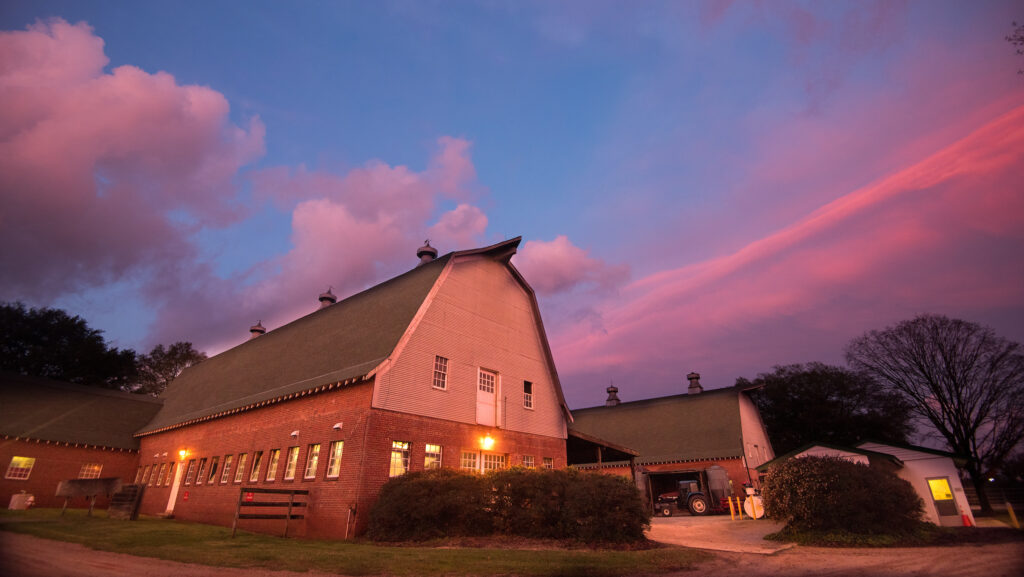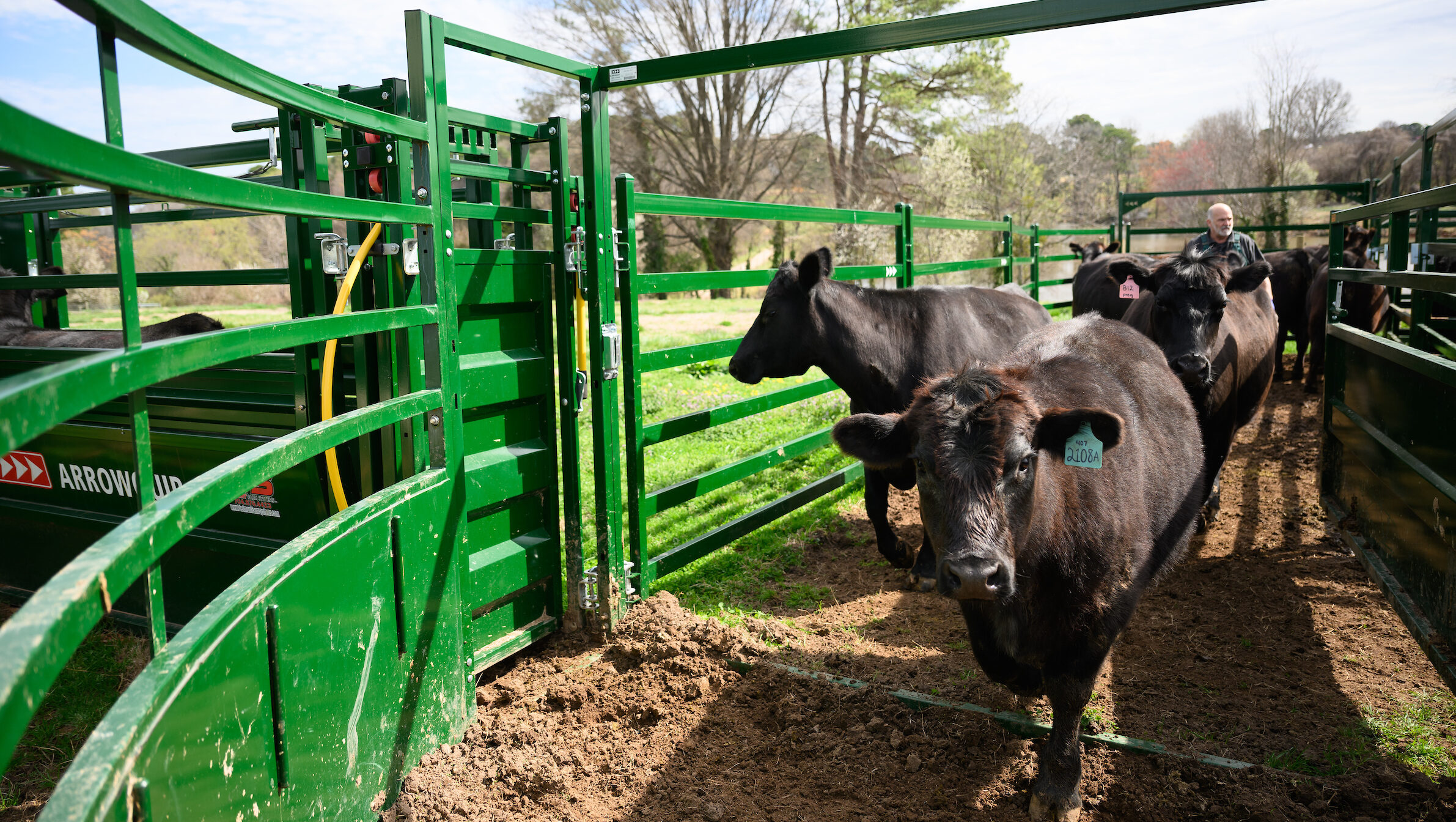Ruminant Health Management
Experts in ruminant health and production medicine work to prevent the onset of disease or parasites in populations of cattle, sheep, goats, and llamas. They are trained in the diagnosis and treatment of medical, surgical, and production disorders in these populations.
NC State Veterinary Ruminant Health Management faculty and staff are actively engaged with the North Carolina farm and food-production industry through research and outreach and are committed to training future veterinarians to serve the industry and private clients. We provide undergraduate, veterinary, and postgraduate instruction in ruminant health management.
Teaching Animal Unit

Education
Veterinary Ruminant Health Management faculty provide direct instruction to DVM students and graduate students. Faculty members also mentor students through summer research projects and experiences in research laboratories. They are extensively involved in the Comparative Biomedical Sciences graduate program, which can also lead to a combined DVM/PhD program. Through this program, veterinary students interested in conducting ruminant-health-related research and becoming academic clinicians can further their expertise. Graduate students work closely with faculty who direct them in swine health studies and research including studies focused on reproductive physiology and immunology, molecular epidemiology, and gastrointestinal physiology. Additionally, ruminant-health faculty members are extensively involved the Food Animal Focus Area.
In addition to course work in swine health management and clinical rotations, students also have access to the CVM Teaching Animal Unit (TAU), a unique working farm where we emulate the real-life conditions of swine production. Students can round out their swine experience through swine selectives.

